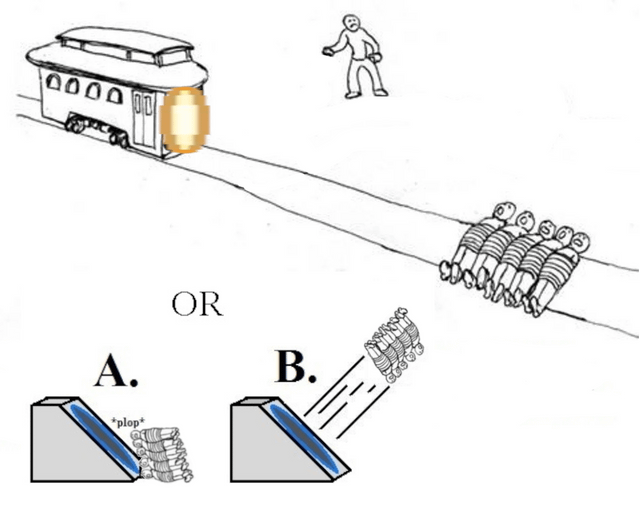this post was submitted on 18 Aug 2023
924 points (97.0% liked)
Memes
52804 readers
1122 users here now
Rules:
- Be civil and nice.
- Try not to excessively repost, as a rule of thumb, wait at least 2 months to do it if you have to.
founded 6 years ago
MODERATORS
you are viewing a single comment's thread
view the rest of the comments
view the rest of the comments

You can say you can expect, but you really can't, because if you're talking about momentum you're talking about velocity and you need a reference frame to define velocity and therefore momentum. Let's pick the sun for instance with the assumptions of A. So if we just have one portal pointing one direction and one portal pointing up and chell walks in, you should blast out straight up at 66,000 mph plus the speed she was walking then. I think you could make the reference Frame to earth and try and get a, but that would create problems too.
I think B, velocity relative to the moving portal, would be the only way to maintain some kind of consistency in game if you were going to have moving portals. Your examples are most consistent with B. A portal falls on chell, how fast does she come out? The speed the portal fell on her of course. And then she stops going out once the portal stops moving because it hit the ground and has stopped moving and they no longer have any relative difference in velocity. You could also say in the platform example that the platform was sitting still and the portal was moving down, you would emerge out the portal at the speed the first portal was moving down. Both should be equally valid ways if you want to maintain some consistency. But all of this is probably why they don't allow moving portals in the first place.
In the end though these are definitely strange unknowable physics, portals don't exist, so really you could make the game however you please, either one is perfectly valid, you could just say any velocity on the other side is whatever it was in relationship to the earth before going through, but that'd be weird, because how fast do the people move out of A then? Do they fly out at the speed of the moving portal and then suddenly stop mid air and plop straight down? If you're not moving faster than a moving portal does is become brick wall and smash you out of the way so you don't gain any velocity in relation to earth so A can be maintained? There's no way to test it in the current games. Hence the endless arguing. But I think B would be most consistent and allow for some really interesting puzzles though, especially if you had two moving portals! Or maybe 3d portals that can sit in the air and allow full movement through them in any direction to help make it possible. Portal 3? In VR with depth perception to accommodate?